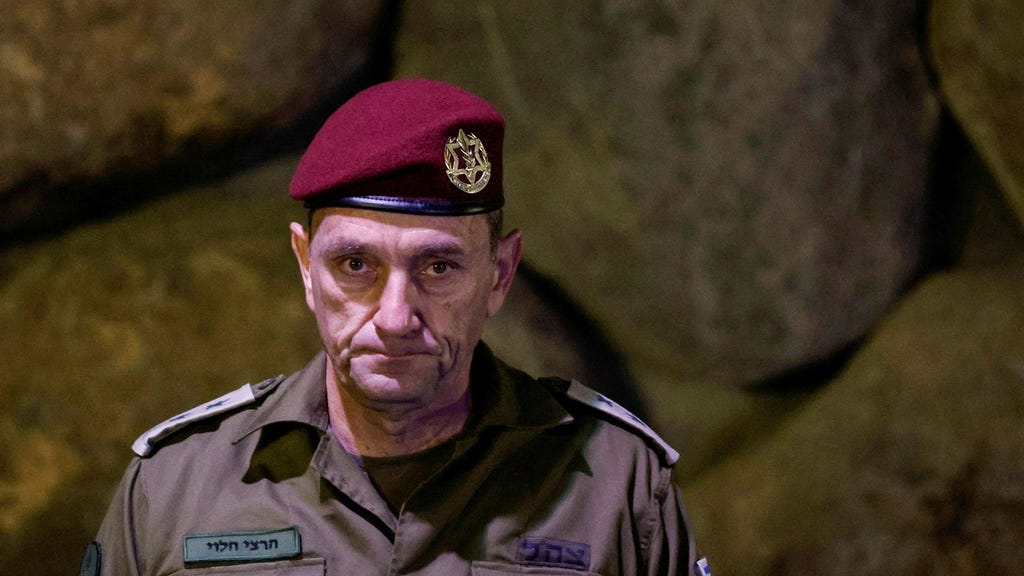The resignation of Israeli Defense Forces (IDF) Chief of Staff, Herzi Halevi, marks a significant turning point in the aftermath of the devastating Hamas attacks on October 7, 2023. Halevi’s departure, driven by a profound sense of personal responsibility for the intelligence and security failures that allowed the attacks to occur, underscores the depth of the crisis facing Israel and its military apparatus. His statement, ”My responsibility for this terrible failure follows me every day, every hour, and will remain with me for the rest of my life,” reflects not only the immense scale of the tragedy but also the internal reckoning within the IDF as it grapples with the unprecedented breach of its defenses. This resignation signifies a moment of profound introspection for the Israeli military and the nation as a whole, as they confront the operational and strategic vulnerabilities exposed by the Hamas offensive.
Halevi’s decision to step down is more than just a personal act of accountability; it represents a symbolic acknowledgement of systemic failures within the IDF. The attacks, which caught Israel largely unprepared, revealed critical gaps in intelligence gathering, threat assessment, and border security. These failings allowed Hamas to infiltrate Israeli territory, perpetrate widespread violence, and take hostages, leading to a significant loss of life and a national trauma. Halevi’s resignation, therefore, can be interpreted as a recognition of the need for a comprehensive overhaul of Israel’s security doctrine and a reevaluation of its strategic posture in the region. It opens the door for a new leadership to implement necessary reforms and rebuild trust in the IDF’s ability to protect the nation.
The implications of Halevi’s resignation extend beyond the immediate security concerns. The attacks and the subsequent response have deeply impacted Israeli society, raising questions about the effectiveness of the country’s intelligence agencies and the government’s overall security strategy. The public outcry for accountability and reform has intensified the pressure on political and military leadership to address the systemic issues that contributed to the crisis. Halevi’s departure, while a significant step, is only the beginning of a long and complex process of rebuilding trust and strengthening Israel’s defenses. The nation now faces the daunting task of not only recovering from the immediate trauma but also addressing the underlying vulnerabilities that allowed such a devastating attack to occur.
The search for Halevi’s successor will be a critical moment for Israel. The next Chief of Staff will inherit a military grappling with the aftermath of a profound security breach and facing a complex and evolving threat landscape. The new leader will need to possess not only strong military credentials but also the vision and leadership skills to implement necessary reforms, restore morale within the IDF, and rebuild public confidence. The selection process will undoubtedly be closely scrutinized both domestically and internationally, as the world watches how Israel responds to this critical juncture in its history. The chosen candidate will bear the immense responsibility of leading the IDF through a period of significant transformation and ensuring the security of the nation in the face of ongoing threats.
Beyond the immediate leadership transition, the Hamas attacks and Halevi’s resignation have broader implications for the regional security dynamics. The incident has exposed the fragility of the status quo and the potential for rapid escalation of violence. It has also highlighted the evolving nature of the threats facing Israel, which include not only traditional military challenges but also increasingly sophisticated forms of asymmetric warfare. The attack underscores the need for a reassessment of regional security architectures and a renewed focus on diplomatic efforts to address the underlying causes of conflict. The international community will need to play a more active role in promoting dialogue and de-escalation, while also supporting Israel’s right to defend itself against terrorism.
In conclusion, the resignation of Herzi Halevi marks a pivotal moment for Israel. It is a stark reminder of the devastating consequences of intelligence failures and the profound impact of such events on national security and public trust. The departure of the IDF Chief of Staff signifies not just the end of an era but also the beginning of a challenging period of introspection, reform, and rebuilding. As Israel navigates this complex landscape, the selection of a new military leader and the implementation of comprehensive security reforms will be crucial to restoring confidence and ensuring the nation’s future security. The events of October 7, 2023, serve as a stark warning of the evolving threats facing the region and the urgent need for a renewed commitment to peace and security. The path forward will require not only military strength but also diplomatic engagement and a collective effort to address the root causes of conflict.














